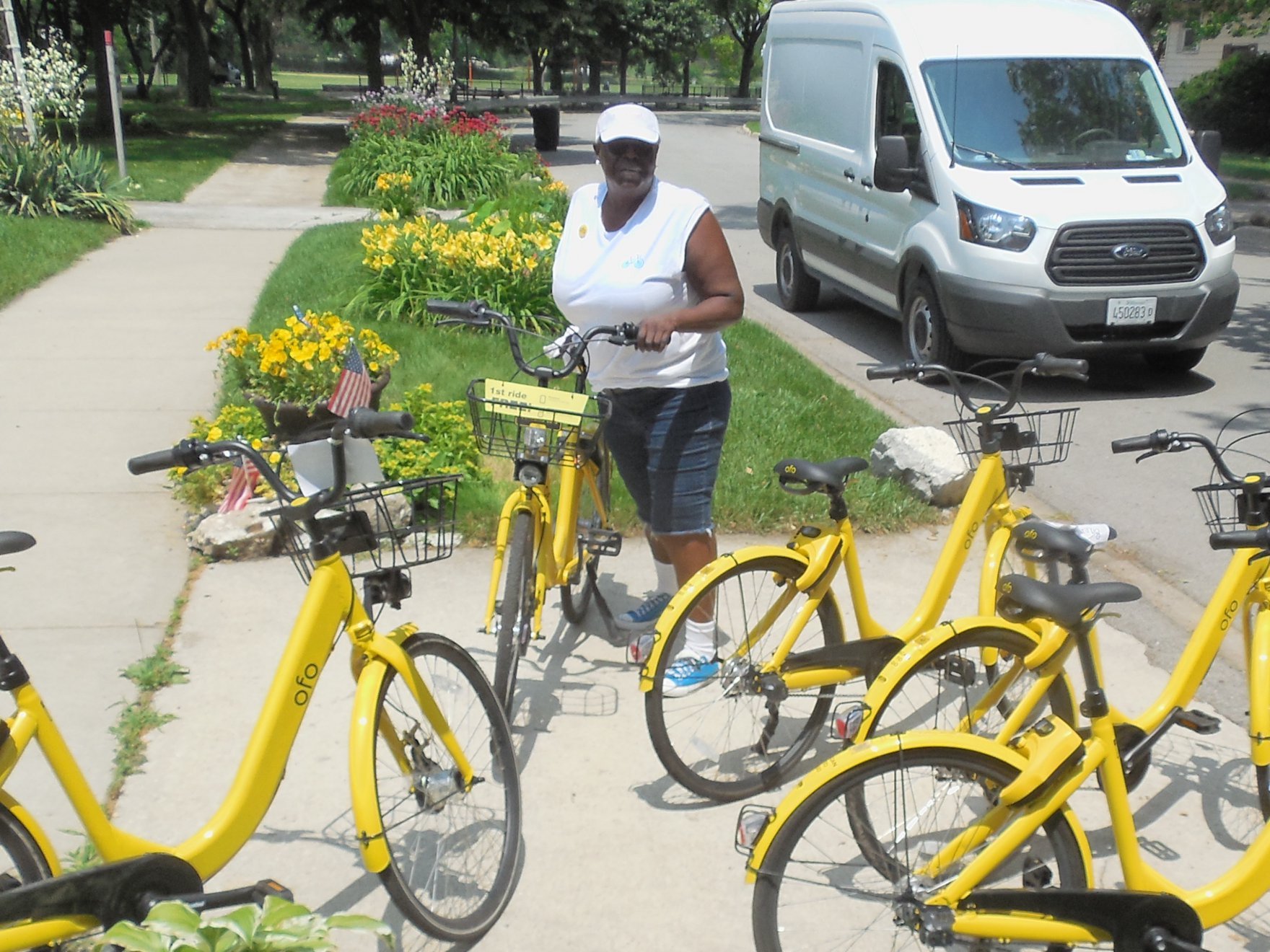
This article also runs in the Chicago Reader.
And then there were three. Ofo, one of the four dockless bike-share vendors participating in Chicago's Far South Side pilot, is taking its marbles and going home. The Beijing-based company, which deployed 50 wheel-lock-only cycles when the test started in early May, announced today that it is dropping out because the city hasn't raised the cap for those kind of cycles. On June 29 the Chicago Department of Transportation changed the DoBi permitting guidelines to allow companies with "lock-to" cycles, which have built-in cable locks or U-locks for securing them to a fixed object, to release up to 350 bikes.
All wheel-lock-only cycles, which can easily block sidewalks or be stolen or vandalized, were supposed to be off the the streets by July 1. But CDOT also tweaked the rules to allow Ofo and fellow wheel-lock bike purveyor LimeBike to maintain their small fleets. Last week LimeBike expressed its displeasure with the still-restrictive rules by launching an online petition urging the city to raise the number of wheel-lock bikes allowed and expand the pilot area. A few dozen people have signed the petition so far.
However, Ofo apparently lost patience with a scenario where their lock-to competitors in Chicago, Pace and Jump, are allowed to deploy seven times as many bikes. In a press release Ofo blasted the updated permit rules, arguing that they "constrain certain companies and prevent them from providing meaningful service in the plot area."
“It’s been a pleasure serving the Far South Side over the past two months, but unfortunately the city’s restrictive regulations have made it impossible for us to continue providing our more accessible and convenient transit option," Ofo said in a statement. "We will continue to work with city officials and hope to one day again offer affordable mobility solutions to everyone across Chicago.”
Ofo also argued that the issues associated with wheel-lock bikes could be solved by having companies "commit to operational excellence, close collaborations with cities, and rider education." The company asserted that Chicago's lock-to preference "chooses winners and losers instead of letting consumers decide which product and service is best for them."
In addition, Ofo claimed that, like wheel-lock bikes, lock-to bikes can also block sidewalks and "while a bike or e-scooter locked only by the back tire can easily be moved, a bike locked to a fixed object requires the next rider, the operator, or local authorities to unlock it." Of course, private bikes U-locked to fixed object are also difficult to remove, but people generally don't see that as being a problem.
Ofo went on to argue that bike corrals, designated DoBi parking zones, and diligent work by the companies' rebalancing crews to move errant cycles can provide the same benefits as bikes that can be locked to bike racks and poles.
One point that the company didn't explicitly bring up is that since Pace and Jump can deploy up to 700 lock-to bikes, that could take up a significant amount of parking space on the Far South Side, which has a lower density of racks than many North Side neighborhoods, this could result in fewer parking spots for private bikes. To address this issue CDOT is installing 100 racks in the pilot area using permitting revenue, and Pace is installing 25 racks on private property, which they say may be used all DoBi or personal bike riders.
Ofo spokesman Jordan Levine told me that, despite leaving the pilot, his company still plans to fulfill its commitment to provide up to 100 cycles later this year for a low-tech "bike library" being operated on the Far South Side by the We Keep You Rollin' bike group. So far Ofo has given them about a dozen cycles, which the group has been loaning out to residents.
Update 7/10/18 8:30 AM: CDOT provided the following statement:
Ofo decided they didn't want to operate according to the rules spelled out in the permit, but the city still showed flexibility and adjusted the pilot so they could continue to participate beyond the July 1 deadline and serve the market they had already established.
We are pleased to see that other vendors are continuing to enter the pilot and willing to provide lock-to bikes. Service in the pilot program will continue to increase, to the tune of hundreds of new bikes, versus Ofo’s 50.
This post is made possible by a grant from Freeman Kevenides, a Chicago, Illinois personal injury law firm representing and advocating for bicyclists, pedestrians and vulnerable road users. The content belongs to Streetsblog Chicago and the Chicago Reader, and Freeman Kevenides Law Firm neither endorses nor exercises editorial control over the content.




